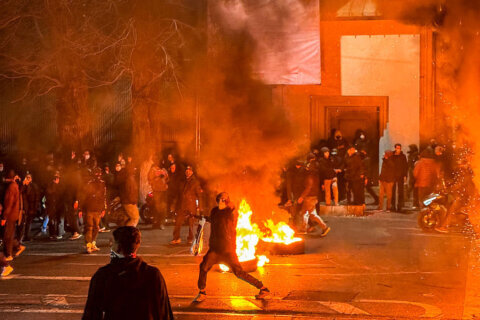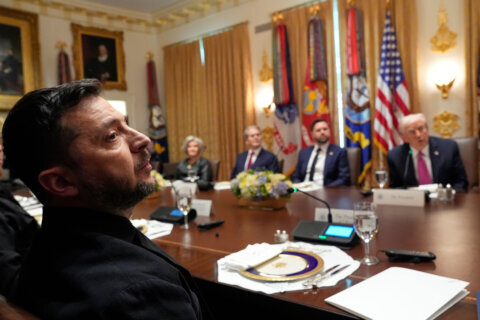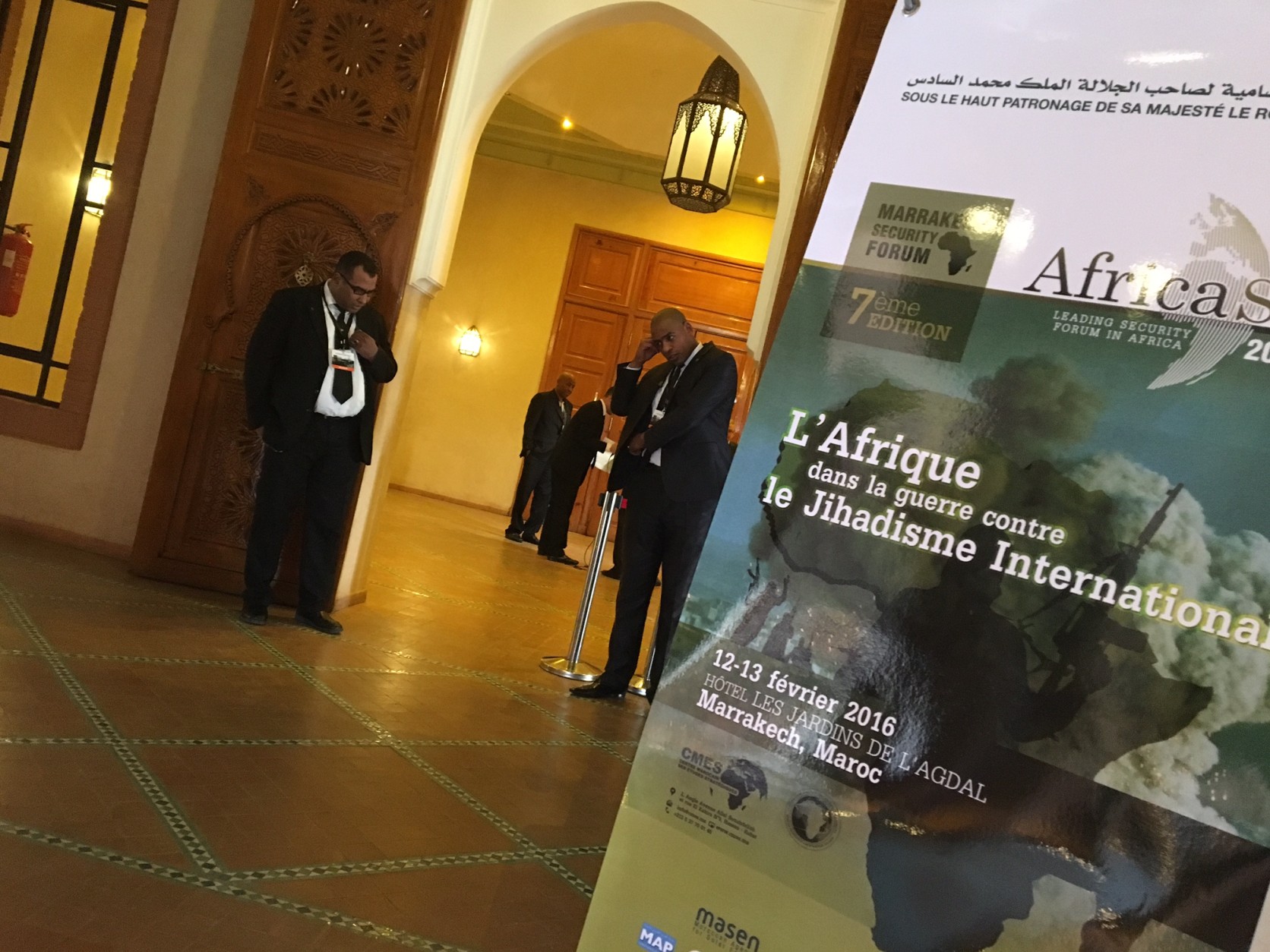
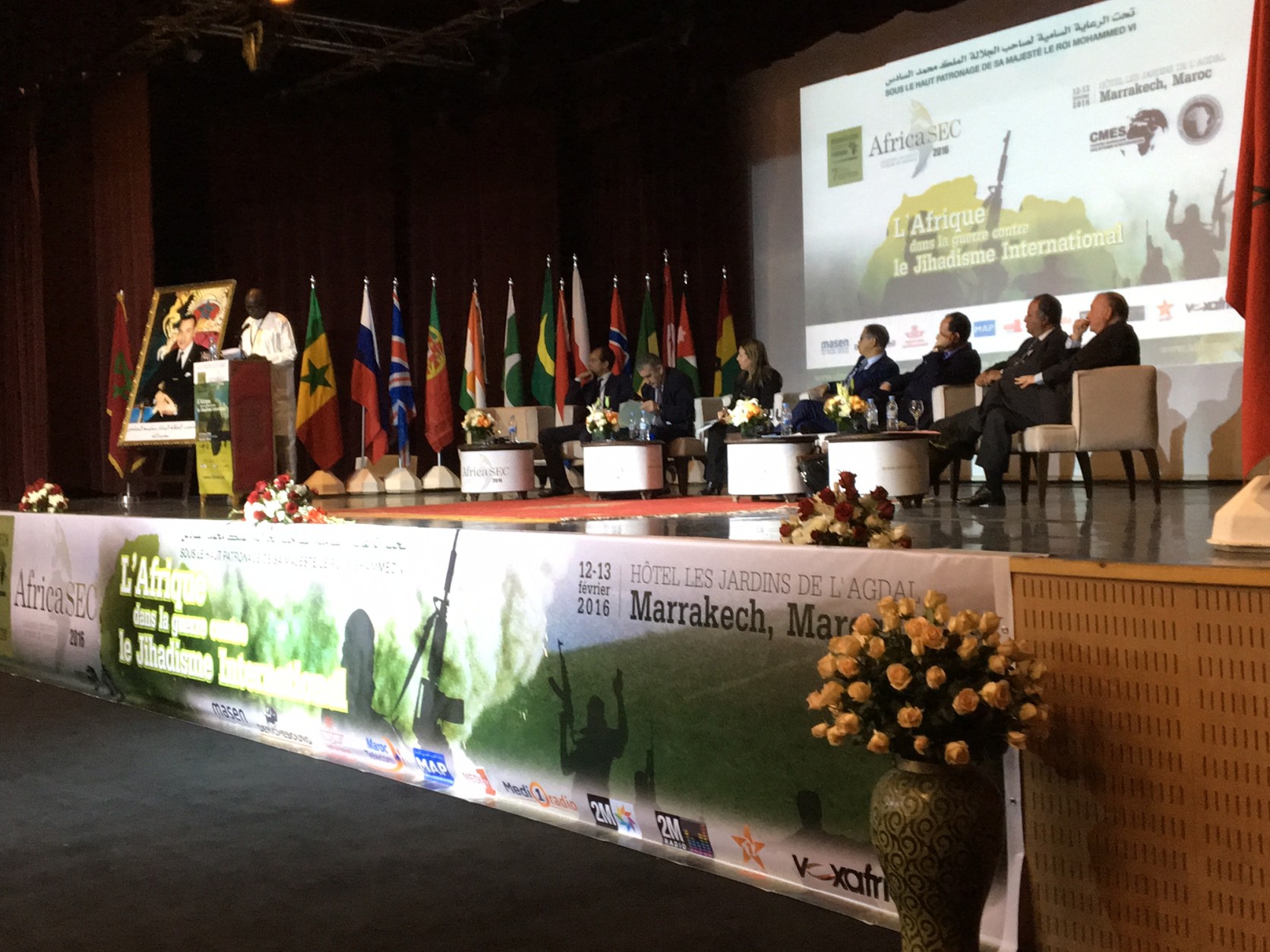
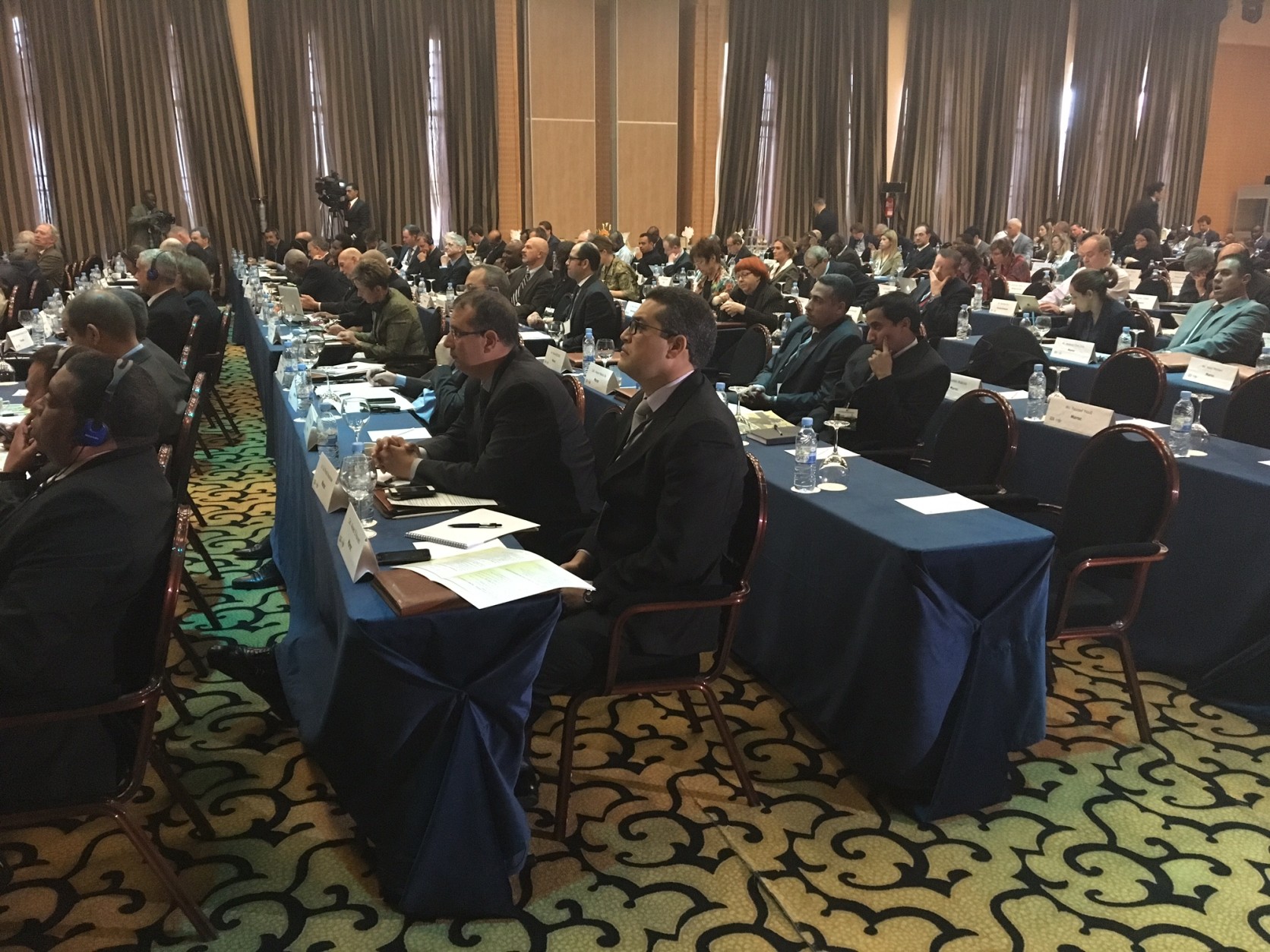
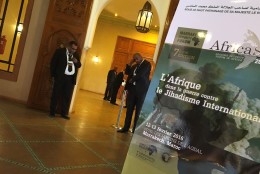
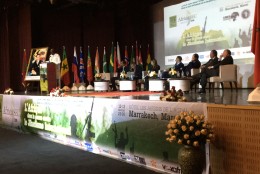
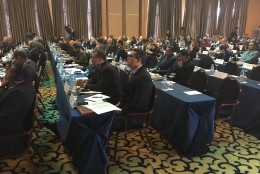
MARRAKECH – Amid tighter security, hundreds of political, intelligence and military officials gathered in Morocco for the Marrakech Security Forum to urgently confront the worsening terrorism problem.
U.S. political and military decisions of the past, which some in attendance called “mistakes,” were strongly criticized here.
The objective of the meeting, the seventh since 2009, was to find a way to expedite efforts to stop the rapidly spreading ideology of the Islamic State of Iraq and the Levant (ISIL) and other terror groups.
In doing so, a theme emerged: the belief that actions from more than a decade ago created today’s deteriorating terrorism environment.
“Many in Egypt and beyond blame the 2003 U.S. invasion in Iraq for the success of the Islamic State,” said Professor Noha Bakr, a professor of political science at the American University in Cairo.
Bakr said many who join the group do it as a “misguided method of protecting themselves from another such invasion.”
She was not alone.
One of the alleged mistakes, according a top Ghanaian official, is the U.S. decision to close the Guantanamo Bay facility.
“Some in Ghana believe by agreeing to accept two Guantanamo Bay terrorism detainees is importing a U.S. problem, and a growing number of Ghanaians think the decision endangers their lives,” said Akwasi Opong-Fosu, minister to the Presidency of the Republic of Ghana.
“An intense discussion is underway in Ghana and many are angry that the Ghanaian government has put them at risk,” he continued.
Top strategists at the meeting indicated the West’s lack of understanding of often complex African cultures, heavy-handed policies of the past, and current mistakes continue fueling terrorist activity that may take decades to remedy.
Those western actions often impact less-developed nations looking to the west for advice.
“Poor counterterrorism responses, in stable states such as Kenya and states in conflict such as Iraq and Afghanistan are quickly becoming drivers of radicalization,” said Rahma Dualeh, senior advisor to the European Union’s Countering Violent Extremism Program. “This is the reality in Afghanistan, Iraq, and other former war zones. It’s also even becoming a reality in the west and elsewhere.”
Yet another area of discontent at the two-day summit was media treatment of the problem.
A prominent Moroccan official said the press has provided ISIL with the most potent tool it has.
“The respect that comes with using the word Islam to describe the group is feeding the problem, said Dr. Ahmed Abbadi, secretary-general of the Rabita Muhammadia of ‘Ulamas. He advocated that the group no longer be referred to ISIL because “there is nothing Islamic about D’aesh.”
“Terrorism is killing our societies,” said Sameera Bin Rajab, spokeswoman for the government of Bahrain.”
And while the western finger-pointing was done it a diplomatic way, the bottom line was inescapable: Terrorism is spreading more rapidly than the efforts to stop it.
It’s a global phenomenon, but Africa appears to be the new forefront for extremist activity.
According to an analysis of African terrorist activities, produced by the Moroccan Center for Security Studies, at least 10 terror groups consisting of 40,000 fighters operate in Africa.
Just hours before the conference began, extremists attacked a United Nations base in the northern Mali town of Kidal on Feb. 12, killing several people and wounding 30. That’s minor by comparison to other recent attacks on the continent, but it was no less a lightning rod at the conference.
Some representatives emphatically declared the continual spread of terrorism is a product of the latent global campaign that enabled the rise of ISIL and other terror groups.
The conference was not just a forum for blame, but solutions emerged as well.
Professor Fernando Reinares, of the Global Terrorism Program at Elcano Royal Institute in Spain, said the most urgent need is addressing “second- and third-generation Muslims.”
He believes many of those who’ve left comfortable lives to join ISIL did so because they’ve had trouble finding their place in a world the terror group says disrespects them and seeks to repress them.
“What is driving them is an identity crisis,” Reinares said. “The Islamic State has used multiple elements to satisfy them, including a promise of adventure, glory, sense of belonging, fulfillment and money.”
Angel Losada, the E.U. special representative for the Sahel, called the dramatic increase in terrorism an explosion of extremism that can only be corralled through an aggressive multi-pronged approach.
“There are four elements,” Losada said. “We must combat extremism, address issues impacting young people, be sensitive to migration developments and manage borders to combat illicit cross border trafficking.”
Conference coordinator Mohammed Benhammou told WTOP that “now more than ever, it’s important that all the security services around the world cooperate on efforts to confront terrorism, but that has not been the case.
“We hope this conference illuminates the urgent need for cooperation and reinforces the commitment to do so,” Benhammou said.
Benhammou thanked President Barack Obama for his leadership and the U.S. role in fighting ISIL, but as possible U.S.-led military action looms in Libya, he urged western leaders to remember “military action alone won’t solve the problem.”
“All of the stakeholders must be included in the discussions and the action,” he said.
In a statement to WTOP, Obama National Security Council spokesman Ned Price said the “now 66-member Global Coalition to Counter ISIL, led by the United States, has intensified the fight to liberate ISIL-controlled territory in Iraq and Syria and has made significant progress in its campaign to degrade and destroy this abhorrent terrorist group.
We began assembling this coalition as ISIL gained territory in parts of Iraq and Syria, and–by marshaling the world–we have since seen significant signs of progress.”
But in the face of diplomatic squabbles, allegations the U.S. is not taking the right steps and moving too slowly, Price said moving into 2016, “President Obama and the broader Administration remain fully committed to eliminating the threat posed by ISIL and will continue to pursue a strategy that strikes ISIL at its core, degrades its networks, and constrains its prospects for expansion.”
“We must be patient and flexible in our efforts; this is a multi-year fight and there will be challenges along the way. But we are united with our Coalition partners and are making progress together to degrade and destroy ISIL,” he said.
As ISIL’s brand of violent terrorism continues to encroach on previously untouched areas of Africa and the rest of the world, a majority of the experts at the conference publicly expressed solidarity for the fight.
But on the sidelines many conceded the quest to stop ISIL gets incrementally harder with passing day.
They blamed divisive squabbles between those allied against ISIL, strategic errors, the slow pace of action against the group, and its prolific use of the Internet to facilitate a steady flow of new faces joining the group.


